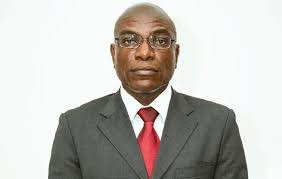
Zimbabwe Economics Society (ZES) vice-president Misheck Ugaro says that investment in infrastructure, ease of doing business, and a negotiated de-dollarisation roadmap are crucial to achieving the 2030 goal of an upper middle-income economy.
Presenting at the Employers Confederation of Zimbabwe (EMCOZ) summit being held in Kadoma, Ugaro highlighted the country’s potential, citing China’s example of lifting over a billion people out of poverty.
“In 1980, China was poorer than Zimbabwe, with a staggering 80% of its population living in poverty. However, over the decades China successfully lifted more than a billion people out of poverty through significant economic reforms and shared growth strategies. This transformation highlights the importance of adopting effective models for development,” Ugaro said.
“While Zimbabwe is rich in resources and possesses skilled individuals, it struggles with poverty despite having abundant wealth, including gold found in every district. This paradox raises questions about how resource-rich countries can effectively harness their potential for economic growth and eliminate poverty.”
Ugaro pointed out key challenges, including a US$40 billion infrastructure gap, the need for a clear de-dollarisation roadmap, and high interest rates.
However, he said that the manufacturing sector was growing, contributing 15% to gross domestic product (GDP), and that there was potential for increased investment.
He thus called on the government to increase its investment in infrastructure, implement business reforms, negotiate a de-dollarisation roadmap, and review interest rates and bank charges in its soon-to-be-launched National Development Strategy 2 (NDS2) document.
“If Trump (U.S. President Donald Trump) removes the Zimbabwe Democracy and Economic Recovery (Zidera) Act, it could pave the way for Zimbabwe to pursue its ambitious goal of achieving 10% annual economic growth,” Ugaro said.
- Commodity price boom buoys GB
- New perspectives: Building capacity of agricultural players in Zim
- Fired judge given 2 weeks to return govt property
- New perspectives: Building capacity of agricultural players in Zim
Keep Reading
“To reach this target, an investment of approximately US$2,5 billion infrastructure is essential, which should come from both local businesses and foreign investors…Zimbabwe faces a significant infrastructure gap of US$40 billion, as reported by the African Development Bank (AfDB), necessitating a robust strategy to attract investment.
“The government is already making strides by repealing excessive charges, making the business environment more appealing. For instance, a company looking to install a 100-megawatt solar system previously faced US$500 000 in initial costs just to begin operations.”
He said by reducing these barriers, Zimbabwe could become increasingly attractive to both local and international investors, facilitating the much-needed influx of capital into the country to support infrastructure development.
Ugaro expressed optimism about the outlook for 2026 and beyond, with a potential budget of US$10 billion.
“I expect the minister (Finance, Economic Development and Investment Promotion minister Mthuli Ncube) to announce a budget of around US$10 billion, which is an increase from the previous US$8 billion,” he said.
However, he cautioned the budget should avoid overshooting to keep in line with Treasury’s fiscal deficit targets.
“I am personally optimistic that if the current economic conditions persist, we could see inflation drop to below 10% within the next 18 months, leading to more stable prices. However, this is contingent on reaching a crucial tipping point, similar to balancing on the edge of a table,” Ugaro said.
“We must tip forward toward positive growth and avoid tipping backward into instability. The issue of de-dollarisation cannot be overstated. It is vital for our economic aspirations. Additionally, the potential repeal of Zidera could provide a significant boost to our economy, as the United States appears eager to remove it to pursue its own interests, which could facilitate increased foreign investments.”










